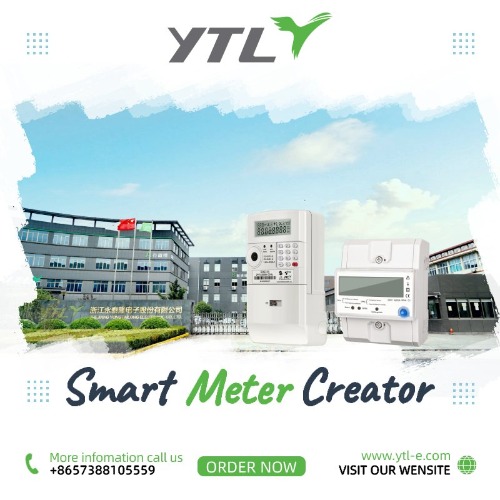Smart power meter will become the most important equipment in the field of smart home, while realizing energy measurement, through automation technology and remote data transmission technology to control and manage terminal electricity and power data analysis, to provide end users with a more intelligent and convenient power management experience. 
So, how are smart meters designed and structured?
1. In the design process of smart meters, the mainly three parts,structural parts, hardware and embedded programs, need to be considered.The basic architecture of single phase smart energy meter and three phase smart energy meter is the same.
l Structural parts include bottom case, meter cover, terminal button case, terminal button cover, etc..
l Hardware includes current and voltage signal sampling, measurement, MCU, control part, data storage, LCD display, communication module, power supply part, etc..
l Embedded programs are the software parts that we usually cooperate with hardware to complete a series of functions such as energy measurement, data acquisition, data processing, load control, and remote communication.

2. In the design process of smart meters, the high accuracy of the smart meter and security of the data need to be considered. In order to ensure the high accuracy of electricity metering, smart Power meters usually use high-precision power sampling sensors and professional metering chips to achieve accurate measurement of electrical energy. In order to ensure the security of data, smart meters will use various encryption technologies, AES, STS encryption algorithms, etc., to ensure the security of data during transmission and storage.
3. In the design process of smart meters, the reliability and stability of the instrument need to be considered. In order to ensure long-term stable operation of the equipment, smart Power meters use high-quality components and materials, and carry out strict quality control and testing during the production process. In addition, smart meters are equipped with remote upgrade capabilities to meet the growing needs of users.

In short, the design architecture of smart meters is a complex system engineering that requires knowledge and technology in multiple fields. In the design process, factors such as data high accuracy, safety, reliability and stability of the equipment need to be fully considered, and continuously optimized and improved to achieve a smarter and more convenient power management experience. If you are also interested in the design and architecture of smart meters, you can delve into the relevant knowledge of smart meters and explore the mystery.

 English
English 简体中文
简体中文








.png?imageView2/2/w/500/h/500/format/png/q/100)





